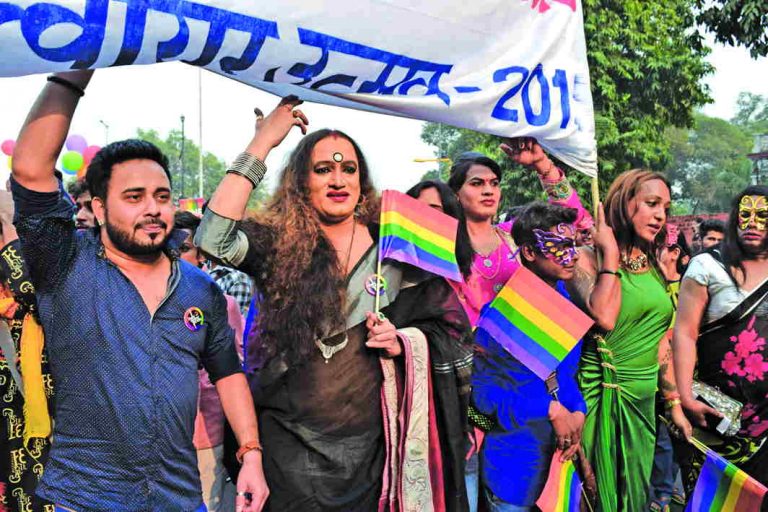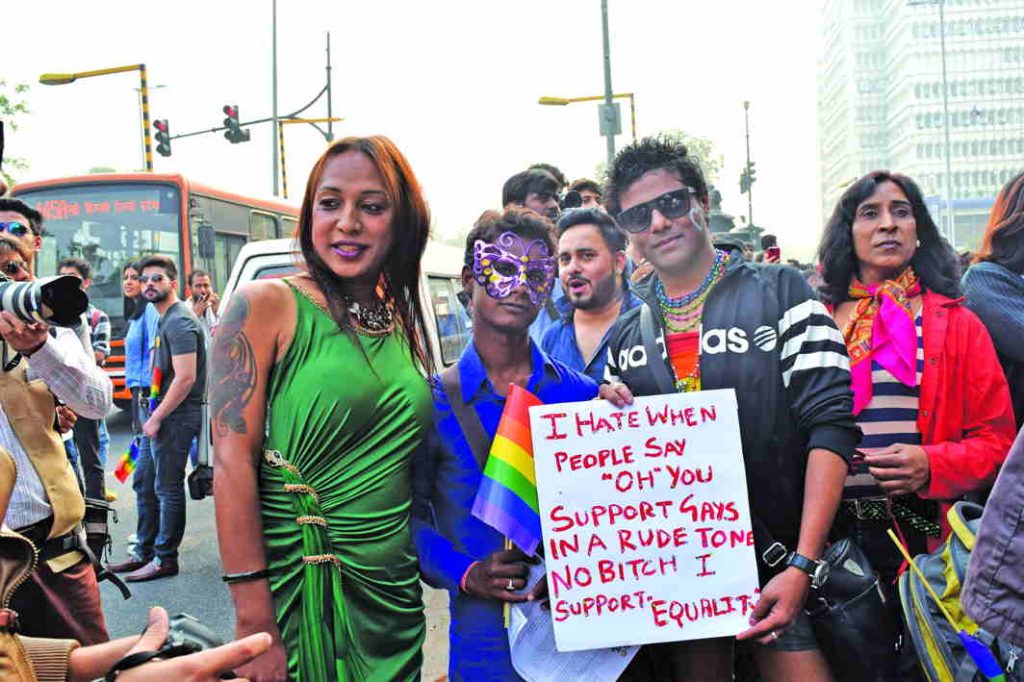
A report by a Standing Committee has made far-reaching recommendations on the controversial Transgender Persons (Protection of Rights) Bill, 2016 and has taken a sensitive stand to secure justice for this community
~By Venkatasubramanian
The process of pre-legislative consultation with stakeholders in civil society helps to correct serious injustices inherent in a badly drafted bill before it becomes law. The Transgender Persons (Protection of Rights) Bill, 2016 is one such legislation which was greeted with universal criticism for its omissions and commissions when it was introduced by the government in the Lok Sabha.
Referring the Bill to a standing committee of parliament was the only option the government had, given the intensity of criticism to various provisions in it.
The Standing Committee on Social Justice and Empowerment, which considered the Bill, and listened to various stakeholders, has now submitted its report to the Lok Sabha. It has made key recommendations so as to make it acceptable to the transgender community. These recommendations won unanimous approval of the Committee which was chaired by BJP MP Ramesh Bais and included 18 Lok Sabha and 10 Rajya Sabha members.
The Bill received universal condemnation mainly because it did not reflect the previous attempts to secure justice for the community—whether it was the Supreme Court’s judgment in the National Legal Services Authority (NALSA) case in 2014, or the Private Member’s Bill, introduced by DMK MP Tiruchi Siva, which is still pending for consideration, along with the government’s bill in parliament.
Trump Backs Off
US President Donald Trump announced a ban on transgender people serving in the US military in any capacity citing “tremendous medical costs and disruption” incurred by the military due to them. It is unclear as to what will happen to the transgender personnel currently serving in the military. This is contrary to the perception he had created during his election campaign where he presented himself as a friend of the transgender community, although the Republican party has many members against the LGBT. The announcement reverses former president Barack Obama’s policy of allowing transgenders into the Army, a year back. Ironically, Trump’s move comes the day the then Democratic president, Harry Truman, had racially integrated the army, 69 years ago.
UNSCIENTIFIC DEFINITION
The Bill defines a transgender person as neither wholly female nor wholly male, or a combination of female or male, or neither female nor male. The report rightly dismisses this definition as unscientific and primitive, as it is based on the underlying assumption of biological determinism, that is, all persons are born with innate and immutable biological attributes, namely, chromosomes, hormone prevalence and internal and external sexual anatomy.

The report, therefore, recommends that a transgender person be defined as a person whose gender does not match with the gender assigned to that person at birth and includes trans-men and trans-women (whether or not they have undergone sex reassignment surgery, hormone therapy or laser therapy, are gender-queers or have socio-cultural identities such as kinnars, hijras, aravanis, jogtas, etc.)
The report wants the government to recognise that transgender persons can face discrimination not just from private individuals and establishments, but also from the State. It recommends a grievance redressal mechanism by which discriminatory acts committed either by the government or by a private establishment can be made liable. The report mentions that the proposed National Council for Transgender Persons does not have the teeth to seek punishment of persons guilty of such discrimination.
A significant criticism of the Bill has been that it does not recognise the right of transgenders to decide their self-identified gender. The Bill, insofar as it requires a screening process for this purpose, has been rightly characterised as running counter to progressive international jurisprudence. As gender identity is internal and personally defined, it is not visible to others. The report understands gender identity as a person’s internal, deeply felt sense of being either man or woman, or something other or in-between. The report apprehends that the presence of medical professionals on the screening panel, as proposed by the Bill, increases the risk that the gender identity of the applicant will be based on some kind of assessment of medical, biological or psychological eligibility. This would risk pathologising trans-identities, the report expressly cautions.The report wants the government to recognise that transgender persons can face discrimination not just from private individuals and establishments, but also from the State. It recommends a grievance redressal mechanism by which discriminatory acts committed either by the government or by a private establishment can be made liable. The report mentions that the proposed National Council for Transgender Persons does not have the teeth to seek punishment of persons guilty of such discrimination.
PLEA FOR QUOTA
The report has expressed its concern over the Bill’s silence on granting reservations to transgender persons under the category of socially and educationally backward classes of citizens, as recommended by the Supreme Court in the NALSA judgment.
Another area of concern expressed was the Bill’s failure to refer to important civil rights like marriage and divorce, adoption, etc., which are critical to transgender persons’ lives and reality, wherein many are engaged in marriage-like relations, without any legal recognition from the State.
The report recommends a grievance redressal mechanism by which discriminatory acts committed against transgenders can be made liable.
The report’s other recommendations include separate HIV sero-surveillance centres to be operated by central and state governments for hijras/transgenders as they face several sexual health issues, provision of separate public toilets for them, counselling services to cope with trauma and violence, career guidance and online placement support.
The report also recommends penal action against abortions of intersex foetuses and forced surgical assignment of sex of intersex infants, separate frisking zones for transgenders at public places and appointment of transgender persons to frisk others of their ilk.
As transgender persons remain at the risk of criminalisation under Section 377 of the Indian Penal Code—an obnoxious provision, which was unfortunately declared constitutional by the Supreme Court—the report makes a subtle, but indirect suggestion that the government considers its repeal.
Reports of Standing Committees of parliament are not binding on the government. But this report, considering its traction among the stakeholders and members of civil society, is likely to influence the government’s thinking significantly.

